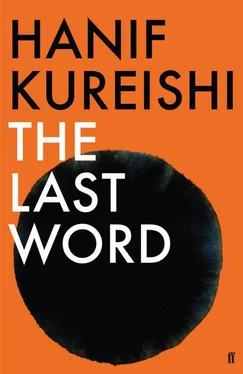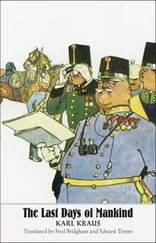Mamoon’s mother was religious, and stayed in her room praying, leaving only to consult experts on the Qur’an. The father had sponsored the boy’s ambition, Harry believed, but not his pleasure, which he opposed. He had had no intention of producing a womanising, hard-drinking, cosmopolitan playboy, sitting in the cafes of European capital cities in worn shoes, borrowing money, stewing in self-pity and debt while discussing Bernard Shaw and Trotsky.
But the father hadn’t entirely succeeded. Harry heard, from a decent source, something stranger and more intriguing, and began to see what the father had been up against. Mamoon had been a seductive teenager, apparently pulling both older men and women — the mothers of school friends; the school nurse; a policeman’s wife, and, it was said, the policeman himself — into his sphere.
Like many Indian patriarchs, Mamoon’s father, in his pride and hope, was determined from the start to send his son to the hated mother country to be educated. The son remained the father’s dream, though, and the father had only a little idea of how wrenching the move would be for Mamoon, and what snobbery, contempt and difficulty he would face. The father couldn’t think of his despairing son wandering the London streets evening after evening, nearly mad with loneliness and anxiety, relieved occasionally by a beer and a whore. Even if it was a bit tough, it wouldn’t be for long, since the boy would return home a better man, and continue to be his lonely father’s prop, his mirror, his chamcha . ‘Remember me,’ reminds the father, endlessly, colonising the son’s mind. And not only that, ‘live with me.’ Mamoon refused. In his suffering, Mamoon wanted to join ‘the larger or complete civilisation’, as he put it later. He dismissed his dad and never lived at home again. The father ensured his own death through grief because of it.
It might appear now that Mamoon always knew what he was doing, that his progress was almost inevitable. Harry learned what determination and strength Mamoon showed, not only in remaining in inhospitable Britain to earn money by his pen, but to make himself into an original writer, one not seen before, speaking from the position of a colonial subject or subaltern, but one without hatred, and with fascination if not identification with the colonisers’ culture. Eschewing contemporary causes and attitudes, Mamoon fashioned himself into a considerable and successful artist from a background which had enabled few before. For a time he did an essential thing, bringing the new into culture, speaking from where no one had spoken. He was rewarded too, and not only that. Any fool would recognise that a successful ‘bolter’ would always inspire recrimination and the radiation of envy. But, at home in India, Mamoon’s rise and achievement was accompanied by a level of resentment, scrutiny and criticism which could have bewildered if not destroyed a lesser man.
Some of it was self-engineered: Mamoon’s insolence, arrogance and the insanity of some of his statements were no secret. But much of this envy was born of bitterness towards the white man. His former friends and allies believed that Mamoon had become ‘white’. For them any betterment was betrayal. Those he left behind said he had made a pact with the devil and violated his forebears and family. ‘I hope that turns out to be true,’ Mamoon remarked to a friend, waving goodbye. ‘Particularly the violation.’
Harry had learned much about all this in India, and had also had time to study the notebooks Julia had given him. With renewed enthusiasm for his subject — how do you write such complication? — he flew with some relief to New York. After three days he went to see Mamoon’s former lover Marion, who lived in a small flat in Portland.
Characteristically, Rob hadn’t exactly ‘organised things’. For the last few weeks Marion had been making it difficult for Harry, cancelling proposed meetings, phoning to ask him more questions, and generally acting like a coquette. All the while she ensured that he was aware she had something valuable to give him, and that there would be a price, though he hadn’t been told what it was. She also insisted on various agents and publishers vouching for his good intentions and honesty. It wasn’t until Mamoon had spoken to Rob, and Rob to her, that Marion gave him a firm appointment. At last he could go to her flat.
The door opened.
With long white hair halfway down her back, and moving slowly and unsteadily on sticks, Marion led Harry into the small, overheated apartment. Relieved to meet her, Harry had tried to take her hand but she insisted on pushing her face towards his, and he kissed her cheeks. She gripped his hand as if she’d touched no one for some time.
She told Harry that as she had cataracts she was unable to read much, watch TV, or clean. What she wanted was conversation, but her family had long deserted her, and she had few visitors now, apart from some nosy students and a secretary who helped her with her writing by taking dictation. There were few creatures on the earth of less interest than a woman in her mid-seventies, but some people were interested in Mamoon Azam. He was the one card she had left.
‘Please, before you interrogate me ,’ she said, bringing Harry tea and biscuits before sitting down with a blanket over her knees, ‘would you be good enough to answer my queries?’
‘Of course.’
‘Do you have anything of his I can touch?’
‘What sort of thing?’
‘A tie. A book he gave you.’
He gestured helplessly. ‘No, sorry, I didn’t think.’
‘He didn’t send anything?’
‘Only me.’
She said he was never particularly thoughtful. ‘But I have his reading glasses here, which I polish every Sunday, while recalling the smell and touch of his skin, remembering his smoky voice — gravelly, harsh sometimes, but caressing — and his careful timing when he made me laugh.’
She could imitate Mamoon well, and appeared to enjoy conversations with him, playing both parts. She asked about Liana without agitation, wanting to know how tall and wide she was and whether she was able to deal with Mamoon’s moods and tantrums, how her cooking was, whether she liked to shop, if she had indigestion, how well she slept, and whether she could cope with his nightmares and whether she made him laugh.
She wanted to hear what Mamoon was working on, whether he dyed his hair now and how his health was, particularly his back, and his stomach and bowels too, as well as his teeth. She needed to know if he still did this or that with his head when you asked him a difficult question. She wanted also to know about the house and its land — the place she’d only seen photographs of, but where she had believed, at one time, she’d spend the rest of her life with the man she loved.
And then she laughed shrilly, before, inevitably, weeping. He wept too, as it seemed participatory and kind, and they called one another soppy. He looked for tissues, and she went to the bathroom to wash her face.
When she was ready, he turned on the tape.
A Colombian with an English Jewish mother, Marion told him how she met Mamoon at a reading, and how they fell in love. Over a period of five years he had visited her often, and they travelled together in India, the United States and Australia. She had left her dull husband soon after meeting Mamoon, and had taken a little place in New York’s West Village, because Mamoon was thinking of setting a novel there. ‘Don’t forget,’ she said. ‘He was a Muslim man, and basically thought of women as servants. I advanced him, but there’s only so far you can go.’
They had always had plenty to say to one another and, like the most attractive men, Mamoon was amusing and sharp — about literature and politics, about others, and primarily, about himself. He was self-absorbed, but too anxious and insecure to be self-admiring. He worried all the time, she said, and could become absolutely frenzied about his work, which kept him sane, just about. He would show her drafts of what he was doing, and she would help him, sitting across the table with a pencil. He listened to her opinions and replied seriously. He made her feel valued and creative, and she knew how those famous books were made.
Читать дальше












